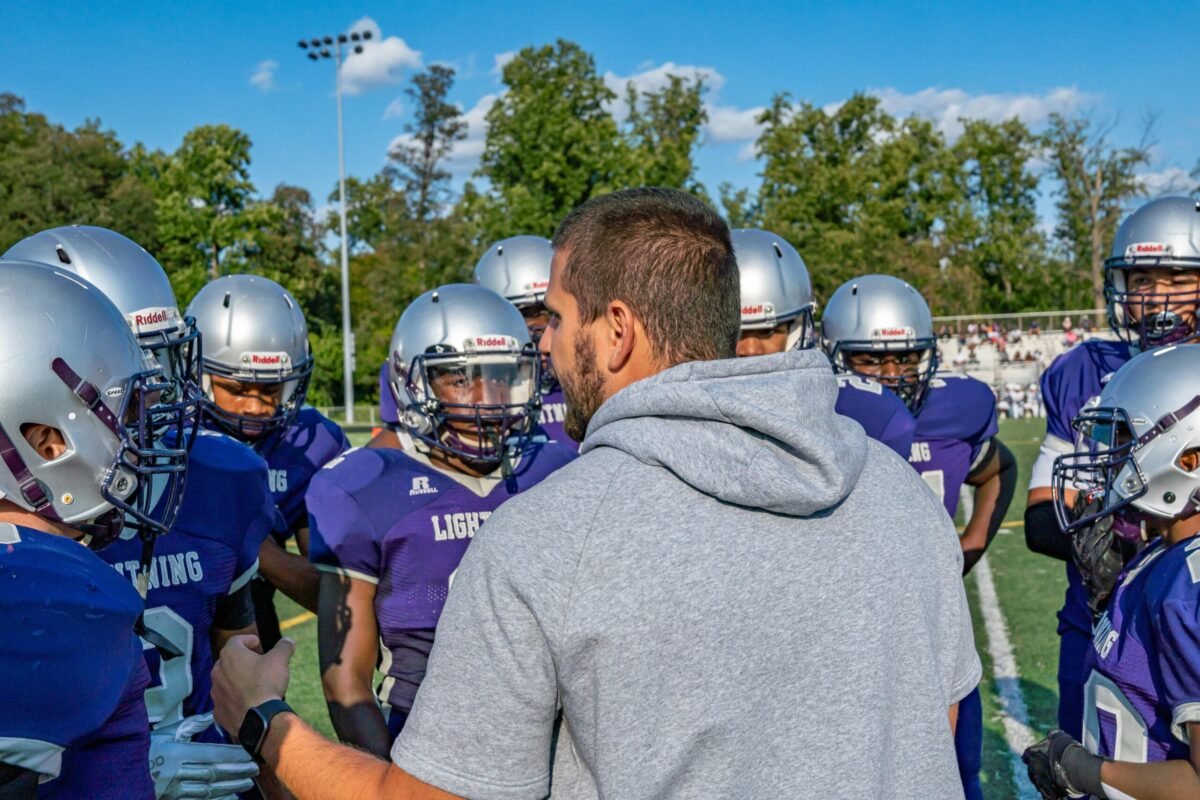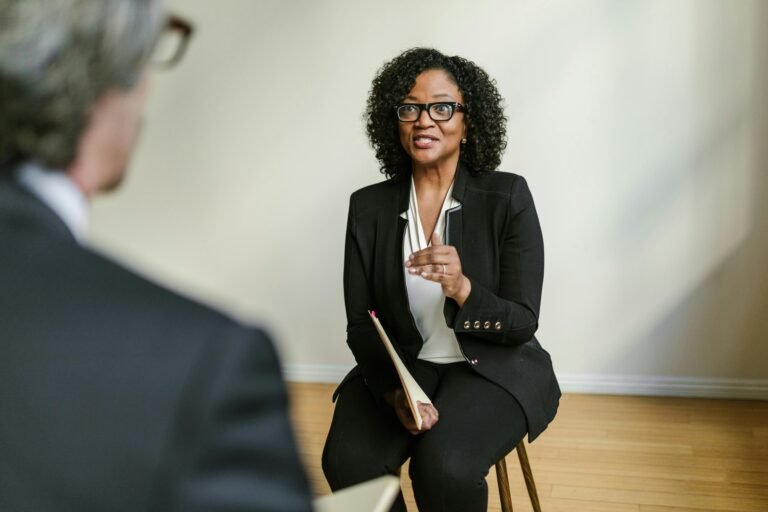Whether you’re stepping into your first coaching position or bringing years of experience, the interview for a Junior Varsity (JV) or Varsity Coach role is your chance to show more than just technical knowledge. Schools want leaders who can mentor student-athletes, build a positive team culture, and uphold academic and behavioral standards while helping students grow both on and off the field.
Here are 10 of the most commonly asked questions for school coaching roles, along with original, example-rich responses to help you stand out.
10 Commonly Asked Interview Questions for Junior Varsity (JV) and Varsity Coaches and How to Answer Them
1. “What inspired you to become a coach?”
What they’re looking for: Your personal connection to coaching and student development.
Sample Response:
“I had a coach in high school who believed in me before I believed in myself. That experience shaped not just how I played, but who I became as a person. I coach because I want to be that steady, supportive presence for student-athletes. I love the challenge of teaching skills, building a cohesive team, and watching players grow in confidence—on the court and in the classroom.”
Tip: Reflect on a meaningful moment that shows why coaching matters to you.
2. “How do you balance competitiveness with student development?”
What they’re looking for: A coaching philosophy that supports long-term growth, not just winning.
Sample Response:
“Winning is important—it builds morale and pride—but I never lose sight of the fact that I’m coaching students first. I emphasize hard work, integrity, and sportsmanship in every practice. For example, even after a tough playoff loss last year, I was proud that my athletes showed grace on the field and took responsibility in the locker room. That told me they were growing in ways that matter far beyond the scoreboard.”
Tip: Schools want coaches who model character, not just results.
3. “How do you approach team discipline and accountability?”
What they’re looking for: Fairness, consistency, and leadership.
Sample Response:
“I set clear expectations from day one and involve athletes in creating team norms. If a player skips practice or violates team values, there are consequences—but they’re always paired with a conversation. For instance, when a player missed practice without notice, I held them out of the next game but also checked in to learn they were dealing with a family issue. We talked about communication, and they came back more committed than ever. Discipline should build maturity, not just punishment.”
Tip: Show that you lead with empathy and consistency, not fear.
4. “How do you handle conflicts between teammates?”
What they’re looking for: Conflict resolution, team-building, and emotional intelligence.
Sample Response:
“Conflict is natural in competitive environments, but left unchecked, it can hurt team culture. I encourage open communication and step in early when tensions rise. Last season, two players had a disagreement that started affecting practice morale. I brought them together for a mediated conversation, set clear expectations, and gave them both leadership roles to rebuild trust. Within two weeks, they were the ones leading pre-game huddles.”
Tip: Offer a specific story that shows how you coach for unity.
5. “How do you ensure all players—starters and bench—feel valued?”
What they’re looking for: Inclusivity, team morale, and leadership development.
Sample Response:
“Every player has a role, and I make sure they know how important that role is. I rotate practice reps, celebrate effort as much as stats, and encourage captains to mentor younger teammates. During a tournament last fall, one of our bench players brought incredible energy from the sidelines, and I made a point to recognize that in front of the team. That kind of spirit helps the whole team stay connected and focused.”
Tip: Emphasize the importance of building a cohesive team, not just a winning lineup.
6. “How do you incorporate academics into your coaching approach?”
What they’re looking for: Student-first mindset and accountability.
Sample Response:
“Academics are non-negotiable. I do weekly grade checks and encourage athletes to attend tutoring or study hall when needed—even if it means missing part of practice. One player was struggling in math, so I coordinated with their teacher and helped them set goals. When their grade improved, we celebrated it like a game-winning point. Athletes represent the school, and academics are part of that identity.”
Tip: Show that you’re a partner to both teachers and students when it comes to academic growth.
7. “How do you plan and structure a practice session?”
What they’re looking for: Organization, skill development, and purpose-driven planning.
Sample Response:
“I design each practice around a theme—like improving transitions or communication. We start with warm-ups and skill drills, then move into competitive scenarios. I always build in team discussions and end with a quick reflection. For instance, during a mid-season slump, I had the team write down what was working and what wasn’t, and we used that feedback to restructure practices. The energy shifted, and we won our next three games.”
Tip: Show that your practices have structure, flexibility, and a focus on growth.
8. “How do you engage with parents and the school community?”
What they’re looking for: Communication, collaboration, and professionalism.
Sample Response:
“I believe in proactive communication. I send regular updates to parents about schedules, expectations, and how to support their athletes. I also attend school events and support other teams because it shows students and families we’re all part of something bigger. Last spring, we organized a ‘Student-Athlete Night’ to recognize achievements across all sports and invited teachers to present awards. It helped build school pride and stronger coach-parent-teacher relationships.”
Tip: Show that you see athletics as part of a school-wide ecosystem.
9. “How do you support athletes’ mental and emotional well-being?”
What they’re looking for: Awareness of mental health and positive coaching practices.
Sample Response:
“I regularly check in with players—not just about performance, but about how they’re feeling. I’ve had athletes open up about stress at home or academic anxiety, and I make sure they know it’s okay to talk about it. I’ve also worked with our school counselor to refer athletes who needed extra support. Practices are structured but flexible—I make room for conversations, team bonding, and the occasional mental break when I can see they’re overwhelmed.”
Tip: Show that you prioritize the person before the athlete.
10. “Why should we hire you as our JV/Varsity coach?”
What they’re looking for: Confidence, clarity, and alignment with school values.
Sample Response:
“I bring energy, structure, and a genuine commitment to student growth. I don’t just coach for wins—I coach for character. I build disciplined, tight-knit teams that reflect the values of the school community. My goal is to develop athletes who are strong competitors, respectful teammates, and resilient individuals. I’d be honored to help lead your students not just through a season—but through a part of their personal journey.”
Tip: Be direct and confident. Tie your values to theirs.
In Closing
Coaching at the Junior Varsity (JV) or Varsity level isn’t just about the game, it’s about leadership, life skills, and creating lasting impact. Whether you’re building a winning season or helping a struggling athlete rediscover their confidence, the role of the coach is one of the most powerful in a student’s life.
As you walk into the interview room, be sure to enter with authenticity, lead with heart, and bring your confident voice as you’ve got something meaningful to offer. Best of luck on your interview
Related Posts
How to Use the STAR Method to Answer Interview Questions
How to Conduct a Self-Assessment to Identify Your Strengths and Weaknesses









